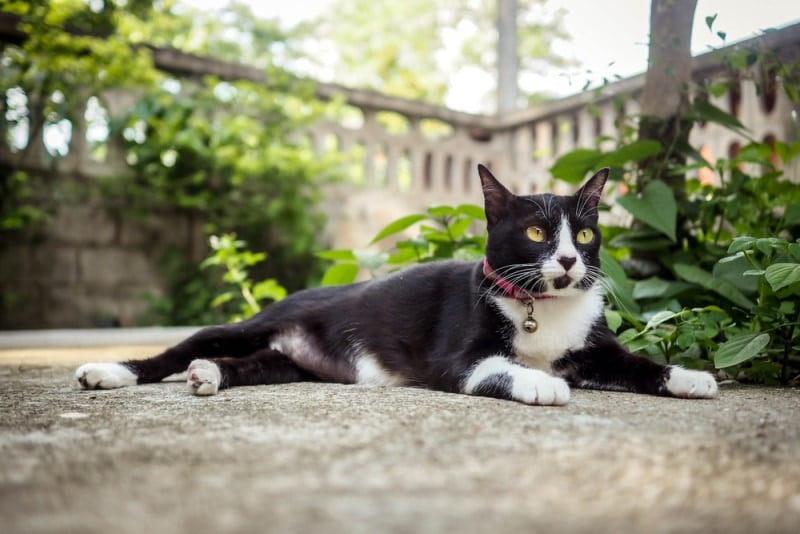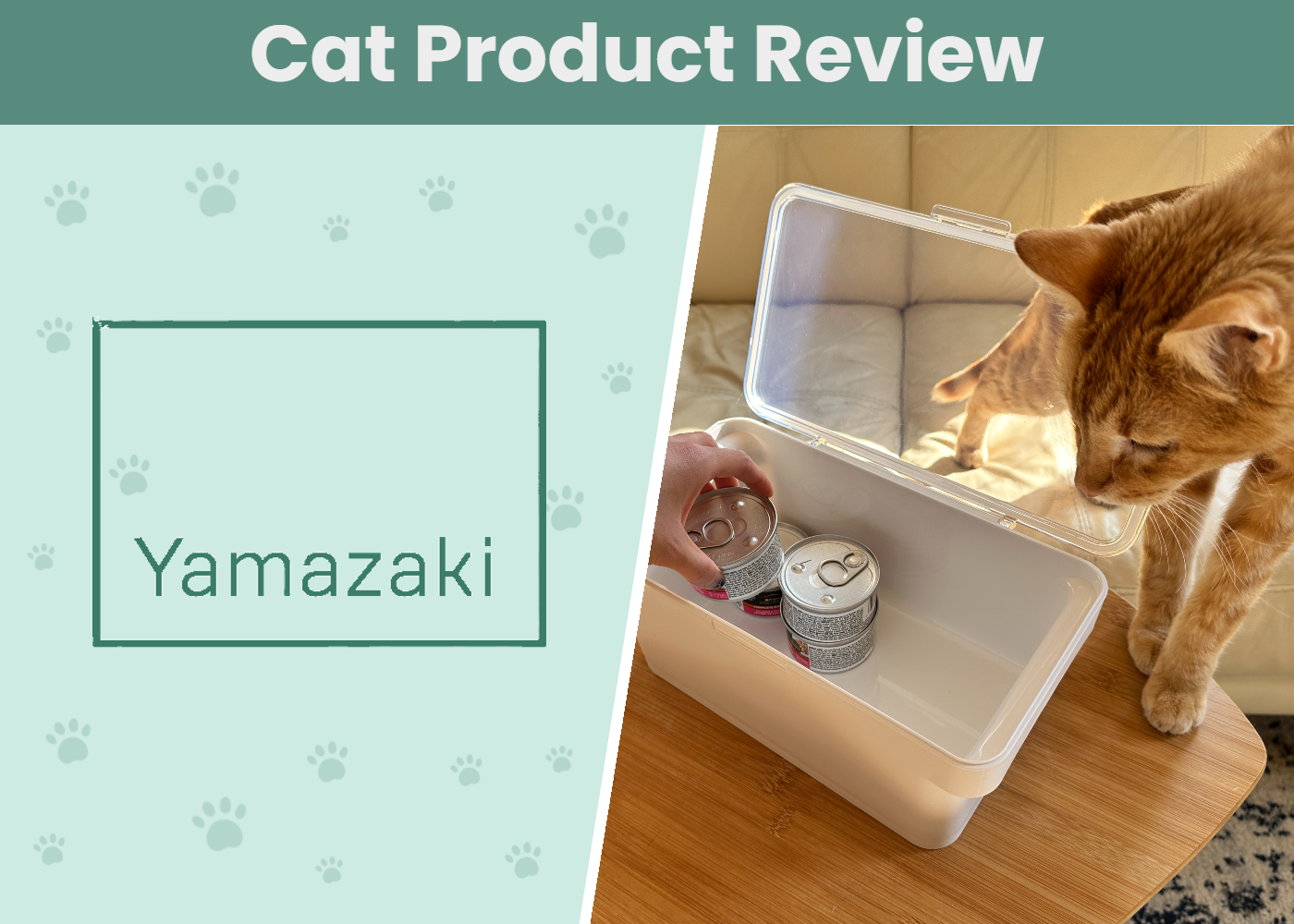Click to Skip Ahead
Cats have a knack for curling up on our laps and stealing our hearts. Just the sight of these felines traipsing through the house can put a smile on your face, even on your darkest days. One thing that has become synonymous with cats is their collars. Many cat owners choose to put cute breakaway collars on their cats with the same type of bling, a bell.
These pieces of jingling jewelry have been used for quite some time to alert prey when a cat is near. It’s a way cat owners help save the lives of birds in the neighborhood. But, like with everything about cats, there’s more to the story of cat collars with bells on them. Let’s take a deeper look at this tradition and whether it’s a good idea for your kitty.
The 2 Main Benefits of Bells on Cat Collars
1. Alerting Prey of a Cat’s Approach
The main reason bells started being used on cat collars was to alert potential prey, especially birds, that a cat is near. In case you didn’t know, cats are notorious hunters. No matter the size, they have an enormous prey drive. When they are out and about in the neighborhood, any small prey can become their target. This includes birds, mice, squirrels, and several other animals. Many pet owners don’t feel comfortable allowing their kitties to take part in the acts of stalking, hunting, and killing prey. To avoid this, the tradition of putting bells on cat collars began.
When your cat is on the prowl, its movements typically make the bell ring. If a bird, or small prey animal, is in your cat’s sights, the noise acts as an alarm. The tinkling of the bell gives the cat’s prey a chance to run or fly away and continue with their lives. Thanks to the bells on collars, small prey animals survive and you aren’t faced with the remains of a kill that your cat may bring home as a trophy. Trophies are common for cats who successfully hunt but aren’t at the top of the list of things we love about our adorable felines.
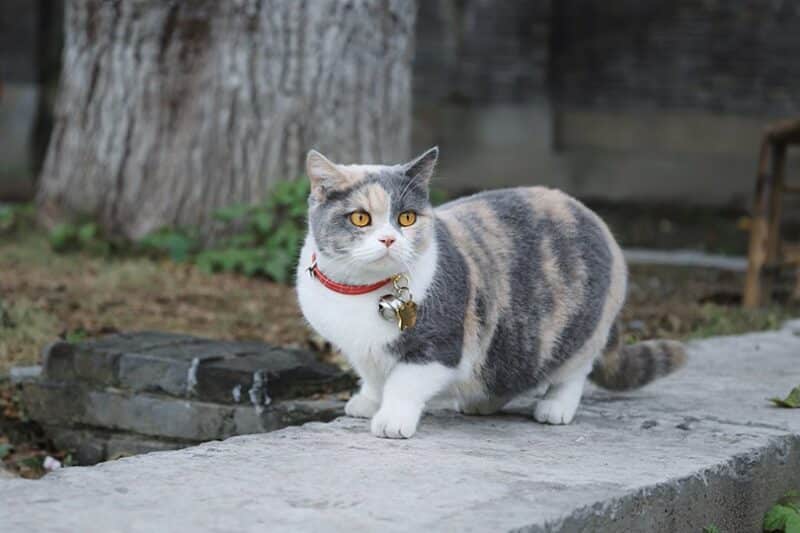
2. Helping You Locate Your Kitty
Another reason so many cat owners want to use collars with bells on them is to help locate their cats if they get out of sight. Cats are curious creatures. They love to explore and find adventure. Often, this takes your cat away from you. To help make locating a missing cat easier, collars with bells are often used. Whether you’re searching the house or the backyard, the tinkling of the bell will tell you where the cat is.
A missing cat doesn’t mean being gone from home. It’s possible to lose track of your cat inside the home. Houses have many nooks and crannies where cats can hide. Unfortunately, some of these places can be dangerous. Having a bell on your cat’s collar can alert you to your cat’s whereabouts just as it tells small prey animals that your cat is in the vicinity.
The 2 Main Downsides of Bells on Cat Collars
Like with everything, bells on cat collars also have a downside. While they are great at protecting other animals from your cat, they can also be putting your kitty in danger. Let’s take a look at the negative side of cat collars with bells so you can have all the information.
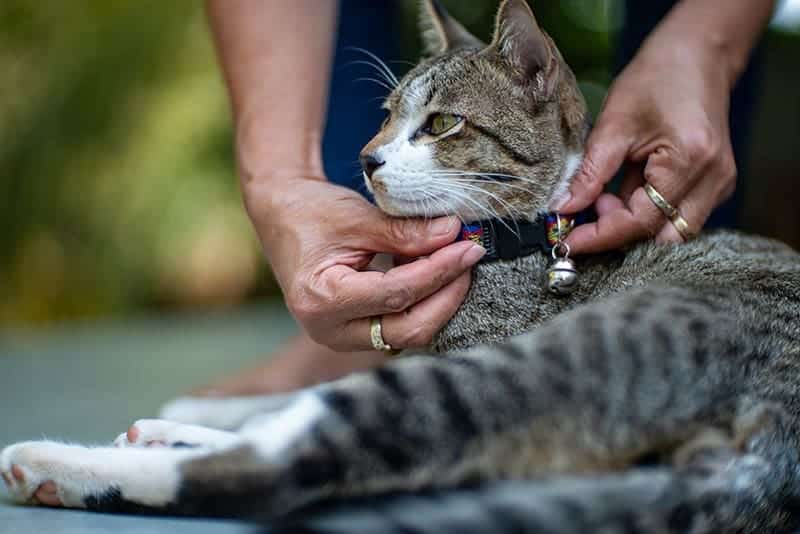
1. They Can Make Your Cat a Target
Just as your cat targets mice and birds when on the prowl, bigger animals may be targeting your cat. Some pet parents are concerned that a bell around their neck can give up their cat’s position when they are trying to hide or flee. Although we could not find studies to support this concern it is unlikely that the quiet noise of a bell will be the deciding factor in predation attempts.
2. They Make Certain Cats Anxious
Some cats have an issue with noises and are quite reactive. If your cat suffers from anxiety, a collar with a bell may not be the best idea. The noise from the bell may cause your cat to react negatively. If you have a cat like this, you should think twice before using a collar with a bell. However, the sound of a bell has been found to be around 50-60 dB and cats are generally unaffected by noises under 80 dB.
Cats are famously curious, but that doesn't mean you can't keep them safe! Equip your cat with a great collar like Hepper's Breakaway Collar, handmade in the USA out of all-natural hemp. This collar features a reliable quick-release buckle, a jingle bell, and adjustable slip-locks that will fit any breed.
- Hemp-Hemp Hooray - hemp breakaway cat collars are long-lasting and resistant to UV rays – The...
- What the neck?! - Our cat breakaway collar has adjustable sizing with metal slip-locks, and softens...
- Breakaway Safety - Cat collars breakaway to ensure that when out adventuring, the material getting...
At Catster, we’ve admired Hepper for many years and decided to take a controlling ownership interest so that we could benefit from the outstanding designs of this cool cat company!
The Adaptability and Intelligence of Cats
While you may expect your cat’s collar with a bell to keep you and your cat’s prey alerted to their location, that isn’t always the case. Cats are highly intelligent creatures that learn how to adapt to their environment. It’s not uncommon for a cat that wears bells on their collar to learn stealth. They’ll move around more gently to avoid making the bell ring. If your cat learns this method of hunting, local animals could be in danger again.
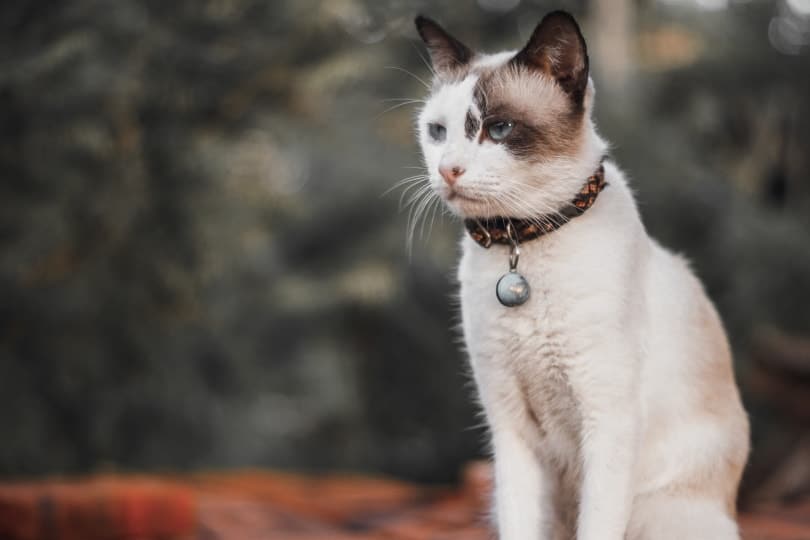
Conclusion
As you can see, there are both positives and negatives when it comes to having a bell on your cat’s collar. Before you choose one of these collars, understand your kitty. If they are scared of noises or show signs of anxiety, a regular collar may be your best option. If this isn’t the case with your kitty, feel free to use a collar with bells. You’ll be taking the initiative to help local wildlife and be able to find your feline friend much more easily.
Featured Image Credit: Wasuta23, Shutterstock

